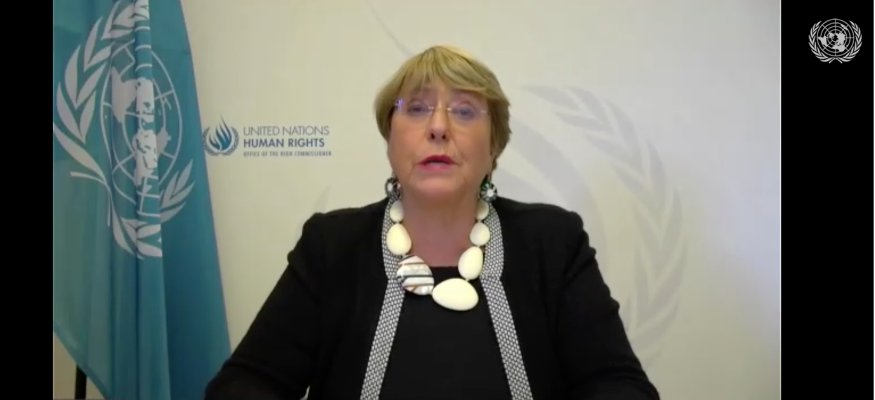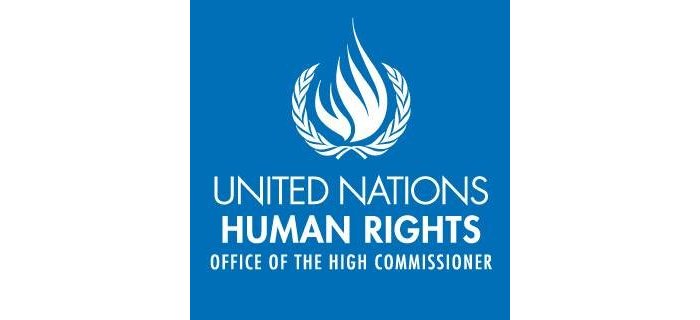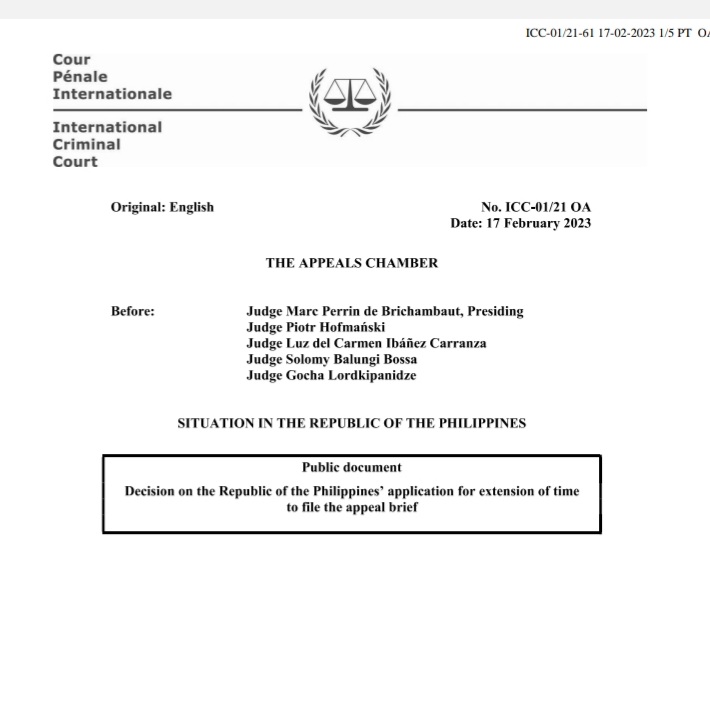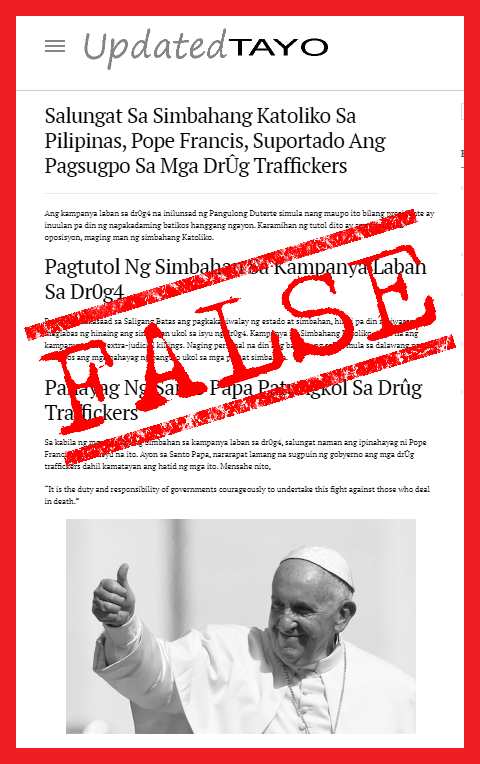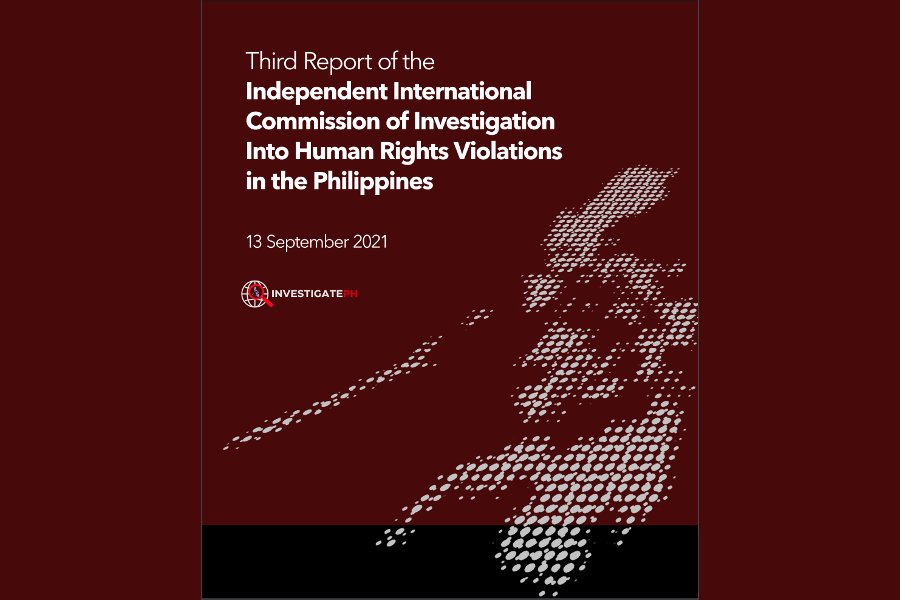United Nations High Commissioner for Human Rights (UN OHCHR) Michelle Bachelet said on Thursday that she “remains disturbed” over reports of “continuing and severe” human rights violations across the Philippines despite the government’s claims that it is addressing the issue.
Reporting at the 48th session of the UN Human Rights Council (UNHRC) on the progress in the technical cooperation and capacity-building between the UN and the Philippine government, Bachelet called on the Duterte administration to make public the findings on 52 cases of drug-related killings involving 154 police officers for investigation for criminal liability so these “can be evaluated.”
She also said she continues to be “deeply concerned” over reports of red-tagging of human rights and environmental defenders, journalists, union activists, church and humanitarian workers to discredit their human rights work and encourage attacks against them.
In October 2020, the UNHRC adopted a resolution mandating the OHCHR to provide support to the Philippines through technical cooperation and capacity building to fulfill its international human rights obligations and commitments.
The council wants the country to improve its domestic investigative and accountability measures and human rights mechanisms, such as human rights-based approaches to counter-terrorism and drug control.
Bachelet will submit another report about the partnership at the 51st session of the UNHRC in 2022. (See UN body offers technical aid to Duterte admin to improve PH human rights situation – Vera Files)
Noting that the Philippine election is drawing near, Bachelet said the Duterte administration should “take determined action to ensure free civic space and protection for those who engage in peaceful civic action and debate.”
Bachelet’s office defines civic space as the environment that enables civil society to contribute to policy making that affects their lives, which includes freedom to express dissent and access to information.
She appealed to all parties to “set aside the ugly rhetoric and destructive narratives that label human rights defenders, attack independent media, or condone extra-judicial killings and other violations and abuses.”
Bachelet also highlighted the challenges in securing accountability for law enforcers involved in human rights violations or crimes, citing the acquittal on Oct. 6 of 19 police officers accused in the 2016 killing inside the detention cell of former Albuera mayor Rolando Espinosa, who was implicated in the Duterte administration’s “drug matrix.”
She said the Duterte administration should publish the findings and reports of its Inter-agency Review Panel, which is tasked to review 5,655 drug war cases in which deaths during drug operations occurred. The panel has recommended investigation of 154 police officers involved in the 52 drug war deaths for criminal liability.
“The authorities should also involve the National Human Rights Commission [referring to the Commission on Human Rights (CHR)] and other relevant actors, including by sharing information on cases under investigation, to ensure an effective and victim-centered process,” she stated.
In her report, Bachelet noted the decision of the Pre-Trial Chamber of the International Criminal Court to allow a full-blown investigation into alleged crimes against humanity in President Rodrigo Duterte’s war on drugs that brings “sharp focus [on] the issue of the ability and willingness of domestic accountability mechanisms to produce clear and measurable results.”
(See ICC authorizes full-blown probe into Duterte’s drug war – Vera Files)
Institutional and policy changes
“While justice must be pursued for the many thousands of victims of alleged extrajudicial killings and other violations in the Philippines, there should also be institutional and policy changes to prevent further violation,” she said.
Nevertheless, Bachelet acknowledged that the Philippine government has made some initial developments and “important preventive measures” such as the recent rulings by the Supreme Court limiting the power of judges in Manila and Quezon to issue arrest warrants outside their judicial regions and requiring police officers to wear body cameras or other recording devices when serving the warrants.
Human rights and lawyers groups have criticized the government for deaths when the police and military served arrest warrants. Bachelet cited the cases of nine Tumandok indigenous people on Panay Island in December 2020 and the “Bloody Sunday” in March 2021 when nine activists in Region 4-A (CALABARZON) died while being served warrants issued by Metro Manila-based judges. (See Is there a warrants factory? – Vera Files)
Other programs borne out of the technical cooperation include the creation of a three-year UN joint programme on human rights in the Philippines, which was signed last July 22. Bachelet said the program seeks to “bolster” the role of the CHR in monitoring counter-terrorism measures of the government amid “series (of) concerns” on the implications of the heavily contested the Anti-Terrorism Act.
“Despite these steps, I remain disturbed by reports of continuing and severe human rights violations and abuses across the country, including killings by members of the security forces and law enforcement in counter-narcotics and counter-insurgency operations – often in circumstances that indicate basic human rights standards have been ignored,” Bachelet said.
Other institutions present in the session such as the European Union (EU), through its representative, also called on the Philippine government and other stakeholders to further engage in “constructive dialogue” to address the abuses. The EU said it is concerned with the “degradation of human rights, democracy and the rule of law in the country.”
Karapatan, an alliance of human rights advocates in the Philippines, said the continuing human rights violations show that the technical cooperation and the UN joint programme “[do] not address the worsening human rights situation in the country.” It renewed its call on the UNHRC to launch an international independent investigation instead.
“There is no let-up in the Duterte administration’s brazen red-tagging and attacks against activists which continue to endanger lives and freedoms in the country. The terror law remains a Damocles sword hanging over the heads of human rights defenders, humanitarian workers, journalists and opposition members, as the 2022 national elections near,” the group said.
